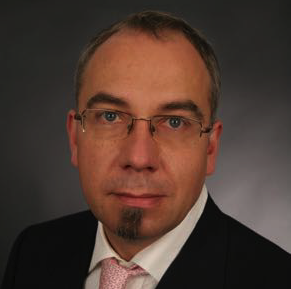The Leibniz Supercomputing Centre (Leibniz-Rechenzentrum, LRZ) is an institute of the Bavarian Academy of Sciences and Humanities (Bayerische Akademie der Wissenschaften, BADW) and functions as the IT service provider for Munich’s universities and a growing number of scientific institutions in the greater Munich area and in the state of Bavaria. The LRZ was founded in 1962 in Munich and is now located on the Research Campus in Garching. The Centre is a front-runner in High-Performance Computing (HPC), both nationally and internationally. It supports outstanding research and education in various scientific domains by providing stable, professional, reliable, secure, and energy-efficient IT services based on the latest IT technologies.
BADW-LRZ operates SuperMUC, a top-level supercomputer with 241,000 x86 cores and a peak performance of over 6 PFlop/s, as well as a number of general purpose and specialized clusters, including an Intel Xeon Phi Cluster (SuperMUC). On December 14, 2017, BADW-LRZ and Intel have signed a contract for the delivery of a new supercomputer at LRZ. SuperMUC-NG, high-capacity, flexible and energy efficient, will be the „Next Generation“ to the currently operating SuperMUC. It will be equipped with more than 6.400 Lenovo ThinkSystem SD650 DWC compute nodes based on the Intel Xeon Scalable processor. This will mean more than 300,000 compute cores that will provide an impressive computational power of 26.7 PFlop/s to be used for a wide-range of scientific computations.
Operating one of the seven European supercomputers in the PRACE consortium, BADW-LRZ is a major player on the European level. It is a member of the European Technology Platform for High-Performance Computing (ETP4HPC) and participated in the European Exascale Software Initiative (EESI2). BADW-LRZ has substantially contributed to the development and operation of the European e-Infrastructures such as, PRACE, GEANT and EGI and has been constantly involved in various EU-funded projects since FP6. In these projects, BADW-LRZ has acted in various roles dealing with diverse topics such as hardware design and operation (Mont-Blanc, DEEP, PRACE); application enabling (DEEP-ER), software design (AutoTune, GN3) and development (VERCE), training (PRACE), education (DRIHM), communication and dissemination (DEEP projects) as well as project management and coordination (IGE).
BADW-LRZ plays the essential role on the Generic Research Data Infrastructure project (GeRDI). GeRDI connects existing and future research data centres in order to support the findability, accessibility, interoperability and reusability (FAIR) of research data across all research disciplines. Furthermore, BADWL-LRZ is a member of the “Munich Data Science Centre”, that provides to the scientific community large-scale data archiving resources, Big Data technologies and Cloud solutions. Partnering universities and research organisations of BADW-LRZ can benefit from the Sync+Share service, which is already being used by 50,000 academic users. The Centre administers a powerful communication infrastructure called Munich Scientific Network (MWN), represents the competence centre for high-speed data communication networks; and serves as the Bavarian Big Data Competence Centre. Within the framework of the Partnership Initiative Computational Sciences (piCS) of the centre, introductory workshops are organised, hosting scientists from Bavarian universities and research institutions as well as other stakeholders like ministries or governmental agencies.
BADW-LRZ has a long-standing tradition in research on the energy-efficient operation of data centres. This not only includes the development of energy efficient computer architectures but also improvements to the building infrastructure and the efficient use of waste heat. It was one of the first HPC centres to deploy direct-liquid-cooled computing resources and remains a strong advocate of hot-water cooling. An additional research focus is on scalable, high-frequency monitoring solutions that facilitate energy-efficient HPC operations. LRZ is an active member of the Energy Efficient HPC Working Group and leads the Energy Efficiency Working Group of the European Technology Platform for High-Performance Computing (ETP4HPC).
BADW-LRZ participates in education and research and supports the porting and optimization of suitable algorithms to its supercomputer architectures. This is carried out in close collaboration with international supercomputing centres and research institutions. Together with JSC Jülich and HLRS Stuttgart BADW-LRZ is a member of the Gauss Centre for Supercomputing (GCS) – the alliance of the three national supercomputing centres in Germany. BADW-LRZ is internationally known for expertise and research in security, network technologies, IT-Management, IT-operations, data archiving, high-performance computing and Grid and Cloud computing.
Key Personnel
 Professor Dieter Kranzlmüller – Full professor of computer science at LMU, the Department of Computer Science at the Ludwig-Maximilians-Universität München (LMU) and the Chairman of the Board of Directors of Leibniz Supercomputing Centre of the Bavarian Academy of Sciences and Humanities. He has worked in parallel computing and computer graphics since 1993, with a special focus on parallel programming and debugging, cluster and especially grid computing. He has participated in several national and international research projects, has been acting as a reviewer and international expert for several countries and research programmes, and has co-authored more than 150 scientific papers in journals, and conference proceedings. At present, he serves as Strategic Director for EGI_DS, the European Grid Initiative Design Study and as Area Director Applications of the Open Grid Forum (OGF). Before his move to Munich, he has been the deputy head of GUP, the Institute of Graphics and Parallel Processing at the Johannes Kepler University Linz, Project Director of EGI_DS, the national representative of Austria in the EU e-Infrastructures Reflection Group (e-IRG), and a member of the Austrian Grid Executive Board.
Professor Dieter Kranzlmüller – Full professor of computer science at LMU, the Department of Computer Science at the Ludwig-Maximilians-Universität München (LMU) and the Chairman of the Board of Directors of Leibniz Supercomputing Centre of the Bavarian Academy of Sciences and Humanities. He has worked in parallel computing and computer graphics since 1993, with a special focus on parallel programming and debugging, cluster and especially grid computing. He has participated in several national and international research projects, has been acting as a reviewer and international expert for several countries and research programmes, and has co-authored more than 150 scientific papers in journals, and conference proceedings. At present, he serves as Strategic Director for EGI_DS, the European Grid Initiative Design Study and as Area Director Applications of the Open Grid Forum (OGF). Before his move to Munich, he has been the deputy head of GUP, the Institute of Graphics and Parallel Processing at the Johannes Kepler University Linz, Project Director of EGI_DS, the national representative of Austria in the EU e-Infrastructures Reflection Group (e-IRG), and a member of the Austrian Grid Executive Board.
 Dr Anton Frank – Research coordinator of the BADW-LRZ. In his position as deputy head of the Research department at LRZ, he is responsible for the coordination and management of a wide range of research and innovation activities related to the advancement of BADW-LRZ’s service portfolio. He is supervisor of the third-party funded research projects and the mastermind behind the partnership initiative “Computational Sciences”. In the recent years he established the new research field of “Environmental computing” initiating various collaborations and projects with earth and environmental scientists in Bavaria and beyond (e.g., ClimEx, ViWA, HiOS, BioKlis). He has acted as steering committee member of the European seismology project VERCE and representative of the BADW-LRZ in the Bavarian project “Virtual Alpine Observatory (VAO-II)”. As former deputy leader of the grid computing group he was involved in various national and European e-Infrastructure projects (DEISA, PRACE, EGI-InSPIRE, e-IRGSP3, D-Grid, NGI-DE, CzeBaCCA, etc.). He has acted as project manager for the EU project IGE (www.ige-project.eu), which was coordinated by the BADW-LRZ. Dr. Frank holds a doctoral degree in computer science from Technical University of Munich for his work in the area of scientific computing on efficient numerical algorithms and coupled systems, concluding a research and teaching position at the computer science department, where he participated in various research projects in the High-Performance Computing area.
Dr Anton Frank – Research coordinator of the BADW-LRZ. In his position as deputy head of the Research department at LRZ, he is responsible for the coordination and management of a wide range of research and innovation activities related to the advancement of BADW-LRZ’s service portfolio. He is supervisor of the third-party funded research projects and the mastermind behind the partnership initiative “Computational Sciences”. In the recent years he established the new research field of “Environmental computing” initiating various collaborations and projects with earth and environmental scientists in Bavaria and beyond (e.g., ClimEx, ViWA, HiOS, BioKlis). He has acted as steering committee member of the European seismology project VERCE and representative of the BADW-LRZ in the Bavarian project “Virtual Alpine Observatory (VAO-II)”. As former deputy leader of the grid computing group he was involved in various national and European e-Infrastructure projects (DEISA, PRACE, EGI-InSPIRE, e-IRGSP3, D-Grid, NGI-DE, CzeBaCCA, etc.). He has acted as project manager for the EU project IGE (www.ige-project.eu), which was coordinated by the BADW-LRZ. Dr. Frank holds a doctoral degree in computer science from Technical University of Munich for his work in the area of scientific computing on efficient numerical algorithms and coupled systems, concluding a research and teaching position at the computer science department, where he participated in various research projects in the High-Performance Computing area.
 Dr habil Gerald Mathias – Habilitated in Theoretical Biophysics at the Ludwig-Maximilians University of Munich. During his PhD and his postdoc stay at the Ruhr-University of Bochum, he has been actively developing methods for molecular dynamics (MD) applications, including classical force fields, continuum methods, hybrid QM/MM and ab initio MD. He is the main developer of the IPHIGENIE simulation package. After his habilitation he was a lecturer at the LMU and participated (TP-C4) in the SFB-749 “Dynamics and Intermediates of Molecular Transformations”. Since he joined the LRZ end of 2015, he leads the activities of the Biolab of the LRZ Application support and works in different projects on code optimisation and efficient usage of resources.
Dr habil Gerald Mathias – Habilitated in Theoretical Biophysics at the Ludwig-Maximilians University of Munich. During his PhD and his postdoc stay at the Ruhr-University of Bochum, he has been actively developing methods for molecular dynamics (MD) applications, including classical force fields, continuum methods, hybrid QM/MM and ab initio MD. He is the main developer of the IPHIGENIE simulation package. After his habilitation he was a lecturer at the LMU and participated (TP-C4) in the SFB-749 “Dynamics and Intermediates of Molecular Transformations”. Since he joined the LRZ end of 2015, he leads the activities of the Biolab of the LRZ Application support and works in different projects on code optimisation and efficient usage of resources.
 Dr Megi Sharikadze – Holds PhD degree in biology and Masters in Biology and Chemistry. Since graduation, Dr. Sharikadze was active in the biomedical field (as a senior research scientist at Beritashvili Institute of Physiology, also at University of Bremen, Ludwig-Maximillians University of Munich, the University of Federal Armed Forces in Munich, Purdue University (USA), RIKEN (Japan). In parallel to her research-related activities in human neuroscience, she has been actively involved in grant-writing, fundraising and consulting activities. Since 2009, she is fully engaged in management of academic proposals and projects. E.g., working at the University Hospital Regensburg as a project manager, Dr. Sharikadze successfully managed LipidomicNet (GA: 202272) – a large-scale FP7 project uniting of 26 partners from academia and industry. Since August 2014, Megi Sharikadze is appointed at BADW-LRZ and is engaged in research coordination and project management of externally-funded research projects.
Dr Megi Sharikadze – Holds PhD degree in biology and Masters in Biology and Chemistry. Since graduation, Dr. Sharikadze was active in the biomedical field (as a senior research scientist at Beritashvili Institute of Physiology, also at University of Bremen, Ludwig-Maximillians University of Munich, the University of Federal Armed Forces in Munich, Purdue University (USA), RIKEN (Japan). In parallel to her research-related activities in human neuroscience, she has been actively involved in grant-writing, fundraising and consulting activities. Since 2009, she is fully engaged in management of academic proposals and projects. E.g., working at the University Hospital Regensburg as a project manager, Dr. Sharikadze successfully managed LipidomicNet (GA: 202272) – a large-scale FP7 project uniting of 26 partners from academia and industry. Since August 2014, Megi Sharikadze is appointed at BADW-LRZ and is engaged in research coordination and project management of externally-funded research projects.
